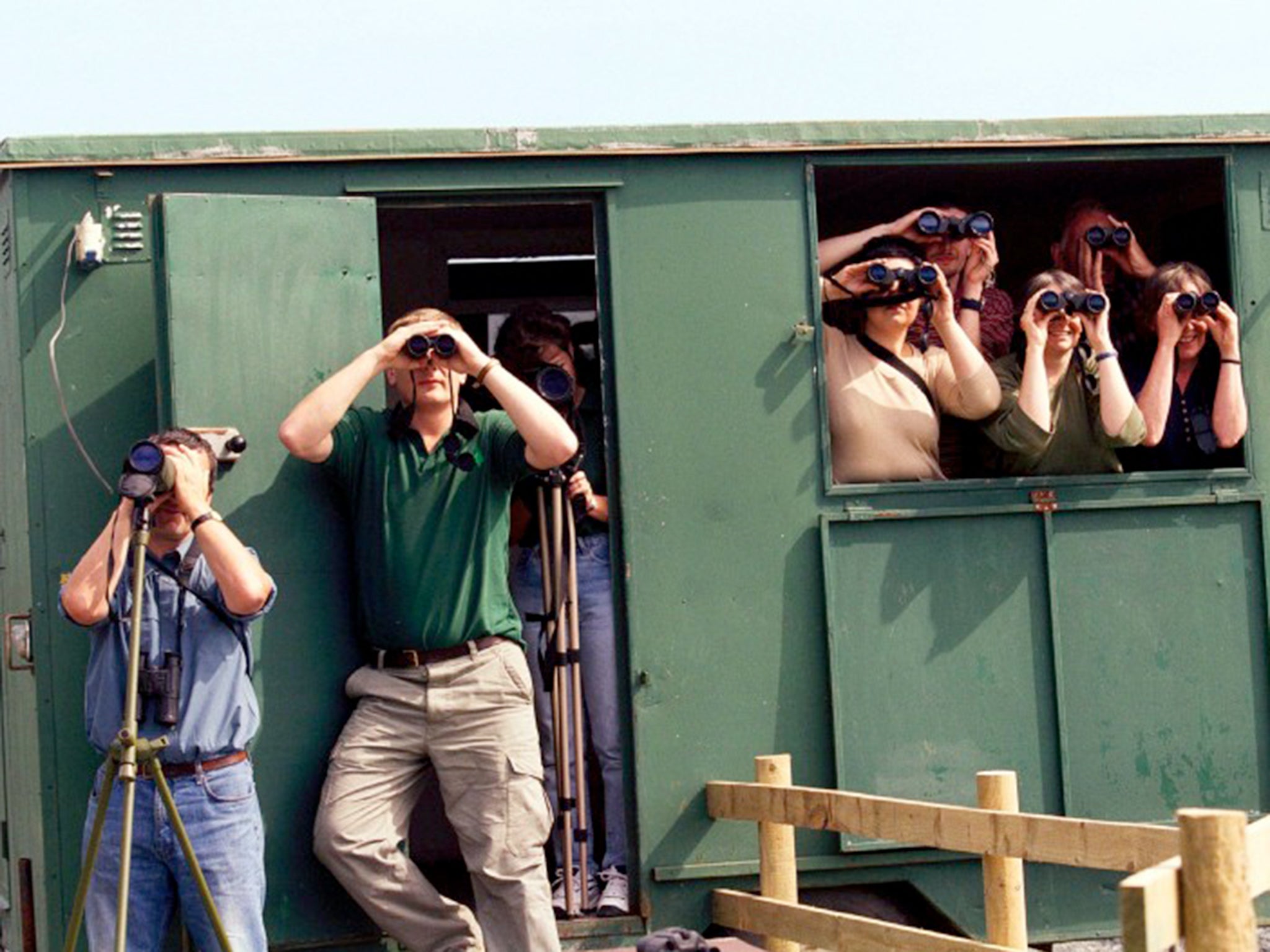Birdwatching men have a lot in common with their feathered friends, new study shows
But despite the differing approaches of male and female twitchers, both were equally committed to their hobby

Your support helps us to tell the story
From reproductive rights to climate change to Big Tech, The Independent is on the ground when the story is developing. Whether it's investigating the financials of Elon Musk's pro-Trump PAC or producing our latest documentary, 'The A Word', which shines a light on the American women fighting for reproductive rights, we know how important it is to parse out the facts from the messaging.
At such a critical moment in US history, we need reporters on the ground. Your donation allows us to keep sending journalists to speak to both sides of the story.
The Independent is trusted by Americans across the entire political spectrum. And unlike many other quality news outlets, we choose not to lock Americans out of our reporting and analysis with paywalls. We believe quality journalism should be available to everyone, paid for by those who can afford it.
Your support makes all the difference.The males of the species are ostentatious, competitive and willing to travel long distances to secure their prize. The females, by comparison, are less showy and more sociable, despite being equally committed to the task at hand.
Such observations would not be out of place in a wildlife documentary but are, in fact, the findings of a comprehensive academic study into the behaviour of male and female birdwatchers. Twitchers, it concludes, go about their hobby in very different ways, according to their gender.
The survey of 954 members of the American Birding Association found that while men and women were equally likely to enjoy the activity, the way in which they appreciate it is very different. Men regard birding as a competitive experience, taking meticulous notes of every species spotted, whereas women see their hobby as more of an opportunity for "personal enrichment".
Men were also found to own far more expensive birdwatching equipment than women, buying more spotting scopes and field guides and travelling longer distances to see their desired species. "In general, it appears that male birdwatchers benefit from a sense of accomplishment and meeting challenges," the researchers wrote.
"In contrast, females appear to be more emotionally attached to birding as an end in itself. Compared with males, they ascribed greater importance to birdwatching as a form of personal enrichment, enjoyment, satisfaction and recreation."
However, the study found that, despite the differing approaches of male and female twitchers, both were equally committed to their hobby and regarded it with similar levels of seriousness. The research paper, entitled "The Gendered Nature of Birdwatching", was published this month in the journal Human Dimensions of Wildlife.
Matthew Merritt, editor of the UK's Bird Watching magazine, said he had often observed an obsessive attitude in male birdwatchers, some of whom go to extraordinary lengths to expand their list: "I don't understand twitchers who drive 300 miles to see a specific bird then drive straight back."
Join our commenting forum
Join thought-provoking conversations, follow other Independent readers and see their replies
Comments